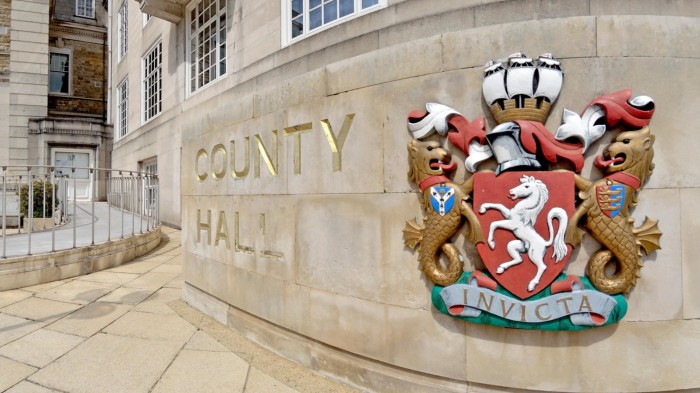Unlock the Editor’s Digest for free
Roula Khalaf, Editor of the FT, selects her favourite stories in this weekly newsletter.
The UK government will provide auditors to local authorities in England to plug the shortfall of firms willing to take on the low-paid, complex work of checking council accounts, in a return to a policy ministers axed a decade ago.
The Ministry of Housing, Communities and Local Government said it would “establish public provision” for auditors providing a check and warning system for the £124bn spent by England’s 426 local authorities each year.
The intervention comes amid a multiyear audit backlog caused by a chronic lack of capacity in local government and the audit market that serves it, a situation worsened by the pandemic and the increasing complexity of council finances.
The availability of specialised local government auditors has become increasingly constrained since the state-run Audit Commission was abolished in 2015 as part of the then Conservative-Liberal Democrat government’s “bonfire of the quangos”, leaving councils to appoint private firms.
The backlog has hit English local authorities far more severely than in Scotland and Wales, where the devolved governments use state-run auditors and private firms.
Just 1 per cent of local government bodies in England published audited accounts on time in 2022-23, according to the government, leading the UK public spending watchdog to refuse to sign off the government’s overarching public sector accounts for the first time.
Fewer than 100 auditors were considered to have enough experience to sign off complex local authority accounts in 2023, and Public Sector Audit Appointments, the body that sets local audit fees, struggled to find enough auditors to do the work.
In a push to cut the backlog, the government on Wednesday said it would provide up to £49mn in funding and build “public provision to supplement private market capacity” through “a phased approach to gradually scale up”, with the aim of creating an “attractive new career pathway in public sector local audit”.
One person familiar with the government’s thinking said public auditors would not replace private audit firms but that ministers wanted a “mixed model” that would reduce councils’ reliance on a small group of private audit firms and ease backlogs.
The government was exploring options including training a pool of qualified auditors, developing shared audit tools, and using a public provider instead of a private firm, the person added.
The government also said it would axe “key audit partner” requirements from legislation restricting which accountants can sign off local audits, in its response to a public consultation on its proposed overhaul of the local audit system.
The requirements, which include certain levels of qualification and experience, allow only some auditors to be appointed to check local public bodies’ accounts. The new Local Audit Office, to be set up to lead the reforms, will instead consider more “appropriate” requirements.
The Local Government Association, which speaks for local authorities, did not immediately respond to a request for comment.




